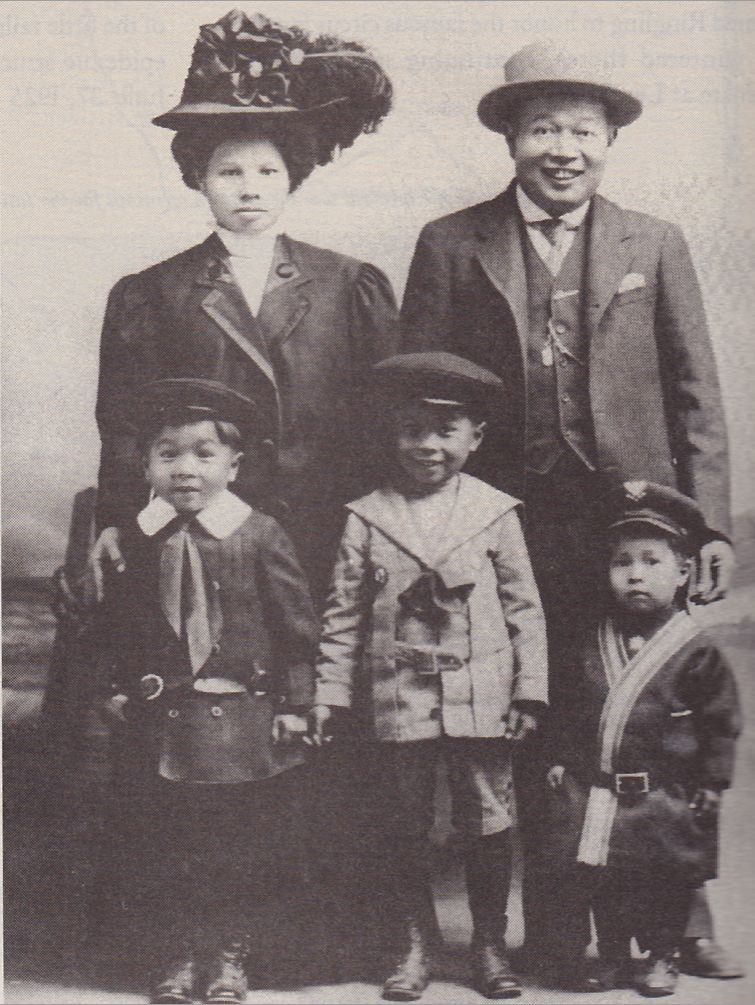Why Trump's 'Bowls Full of Skittles' Outright Disgusts Me

On my Chinese family's side, I'm a 4th generation American. On my English family's side, one of my distant great-grandfathers was the founder of Connecticut, Thomas Hooker.
As someone with part of my family immigrating within the last few generations, Donald Trump Jr's comments on the 'bowl full of Skittles' was distasteful at best, outright historically dishonest at worst.
Eventually, when looking at genealogy, all Americans were immigrants at one time or another, many with shady stories, but most just coming to the United States to improve their living conditions.
My Chinese great-grandfather came to the United States to be the manservant of (the territorial) Senator Thomas Carter.
Wages for this weren't very good, but paid passage to the U.S. was included -- and China was crumbling as the Qing Empire was buckling under the weight of corruption and colonialism.
Refugees numbering into the hundreds of thousands poured into the U.S., often with substantial racial backlash -- including the formation of 'anti-Chinese Leagues' throughout America.
But once in America, Senator Carter saw something special about my great-grandfather, and sent him to night school, where he eventually received a college education and learned completely accent-free English (according to newspaper accounts at the Library of Congress, he was one of the very few court translators because of this).
With Senator Carter's backing, he opened a small business, which grew exponentially. Finally, he opened his final business, a hotel in Lombard, Montana.

In the Montana Historical Society, there hangs this picture of my great-grandfather, his wife, and three sons (one of whom is my grandfather) -- which provided me with the only known photograph of their family.
They embraced American culture.
As a sign of thanks, he named my grandfather after the senator who had first given him a leg-up in America, Thomas Carter Kee (Kee and Yee are the same name, phonetically spelled differently).
But why his picture was preserved at the historical society was for an entirely different reason -- he eventually became the first Chinese-descent mayor of a Montana municipality (Lombard, now a ghost town), breaking through some of the harshest of barriers into American politics.
My great-grandfather, Billy Kee, is the quintessential American success story. From rags to riches, by 1910 he had amassed a small fortune.
I do a lot of genealogy work, often helping others with their trees and hearing stories of how their families originally came into the United States.
Rarely have I ever heard a story where someone came into the U.S. 'by the rules.' After all, there weren't any rules to immigration until the 20th century.
I've heard stories of people coming to our country to escape a criminal past, oppressive economic or political conditions in their homeland, or even just the desire to try to strike it big in America -- where the streets were paved with gold.
And I've heard stories of just how hard many of those immigrant families, whether Irish, Italian, Russian, or Asian, had to work to make a success for the next generation -- to give them a leg up economically many worked from 'can' to 'can't' seven days a week.
These people, they are the 'bowl of Skittles,' throughout American history.
Sure, we worry about terrorism being brought into the United States, and we should -- but it's not like our Founding Fathers didn't face these same issues in the first immigration acts.
The Naturalization Act of 1790 had provisions in it specifically geared toward keeping 'terrorist' Jacobins out of the U.S. for fear of spreading the violence of the French revolution into American soil.
But in general, the 'bowl full of Skittles' has provided America with a bountiful growth of economic and cultural gains, ones that wouldn't have happened without the constant stream of immigration from 1790 to present.
And this is why the 'bowl full of Skittles' analogy outright disgusts me.
It plays to baser instincts of nationalism and nativism, all while ignoring the simple mathematical reality that for every 'poisoned Skittle,' there have been millions of successful immigration stories to be told in America.
It plays on the racial bigotry that everyone from that part of the world is 'obviously' more of a threat than a friend. But more importantly, it makes us suspicious of those who are already here -- even American citizens who have lived peaceably for generations.
We are a nation of immigrants.
Not everyone has the interesting genealogy that I have -- 4th generation success story on one side, American patriot on the other -- but at some point, all of our forefathers decided to come to America.
Immigration, and to a degree helping refugees, has been the defining feature of America for its entire history -- periods of nativism have generally shown up during our darkest times, and produced results that history has generally been unkind toward.
As for me, I'd take my chances with a few 'poisoned Skittles,' and frankly wouldn't lose much sleep over worrying about the harm they might cause -- after all, lone wolf terrorism in the United States is by far more of a domestic problem than an immigration one.
We stand at a crossroads, a decision between embracing our long history of welcoming immigrants with, 'Give me your tired, your poor, Your huddled masses yearning to breathe free,' or rejecting our basic history by assuming an unrealistic probability that those coming here from the world's hot spots are here to do us harm.
We need an immigration policy that makes sense, that protects our nation -- but we are a nation built from 'bowls of Skittles,' and to forget that denies our very past and our future potential.
Immigration and kindness to refugees has long been a part of the greatness of our country, to forget that is only forgetting the path our own ancestors took to get to America.
Photo Credit: Radu / shutterstock.com





